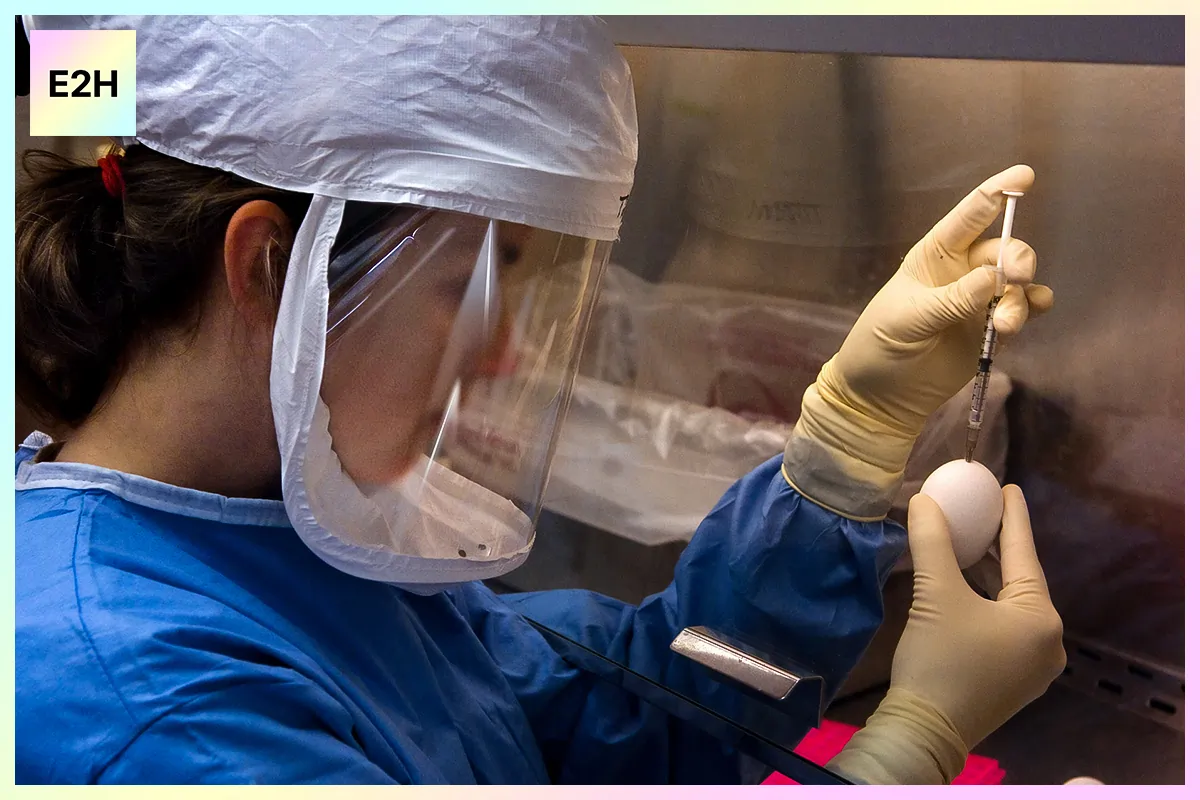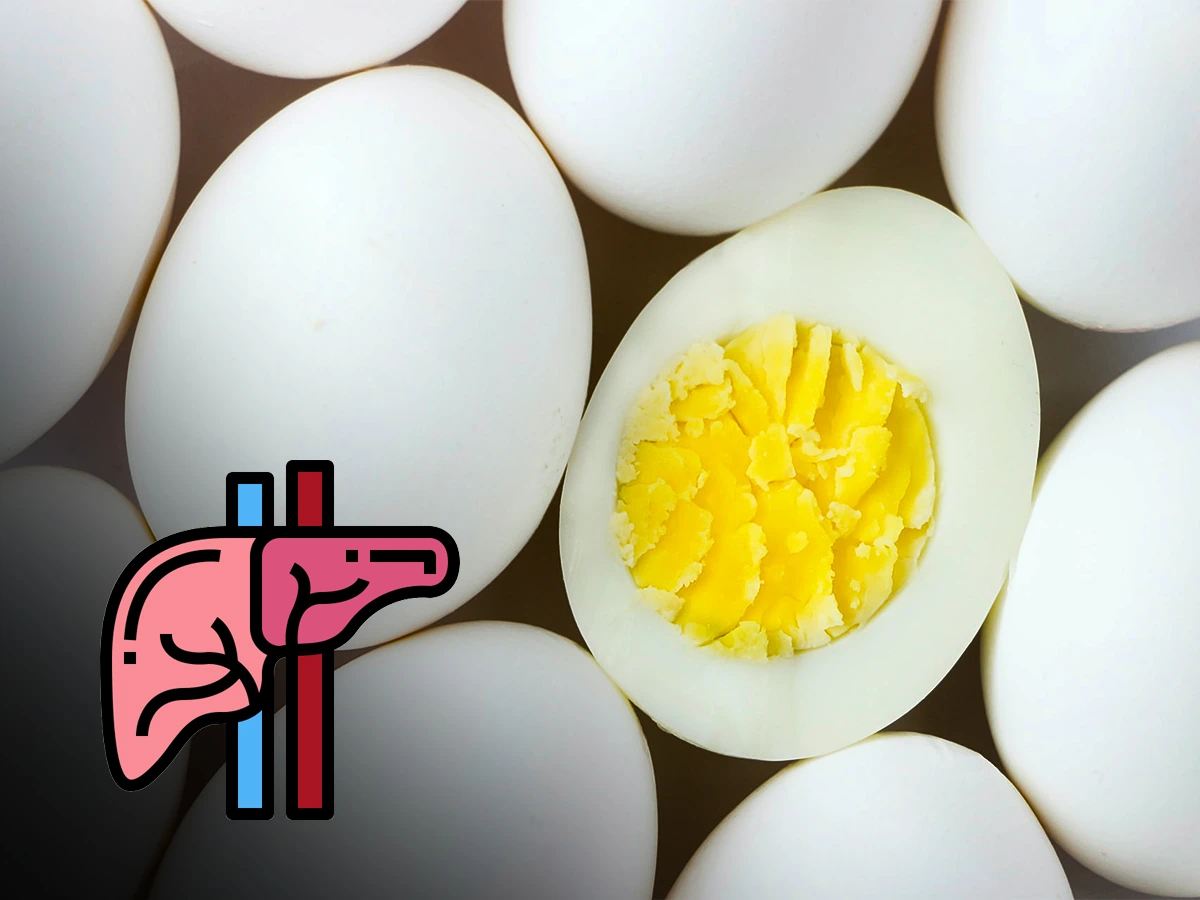Eggs are one of the most popular foods in the world and a staple in many households.
They are known for their versatility in cooking and their various health benefits.
However, there has been some debate surrounding the impact of egg consumption on liver health.
As one of the body’s most vital organs for filtering toxins and aiding digestion,
liver damage can have severe implications for overall health.
This article will explore the relationship between egg consumption and liver health to determine whether eggs are good or bad for the liver.
We will examine scientific research, expert opinions, and other relevant information to understand how eggs affect liver health comprehensively.
So, stay with EasyToHealth 🦋 and read the article till the end to learn more about eggs’ impact on liver health.
Nutritional Value of Eggs
Eggs are nutrient-rich, providing essential vitamins, minerals, protein, and other macronutrients.
According to FoodData Central, just one large egg contains 6 grams of protein, 5 grams of fat, and around 77 calories.
Eggs are also a great source of B vitamins, including Vitamin B6, B12, and folic acid;
minerals such as zinc, iron, and magnesium; and healthy fats like omega-3 fatty acids.
Eggs are widely praised for their role in promoting a healthy diet,
thanks to their high levels of nutrients, low-calorie content, and nutrient-dose variability.
This means that eggs can be a nutritious fuel source for anyone looking to maintain a healthy weight,
from breakfast enthusiasts to dieters.
In addition, by incorporating eggs into a balanced diet,
protein levels can be sustained and energy supplied to the body for longer.
Ultimately, these attributes of eating eggs make them a nourishing addition to any meal.

Are Eggs Good for the Liver?
Regarding liver health, the consensus is that eggs are beneficial,
as they contain essential nutrients that support liver regeneration and detoxification.
For starters, eggs are an excellent source of dietary protein, which is vital to promote liver regeneration and recovery.
In addition, the high-quality fat content contained in eggs, typically from the yolks, can provide the body with energy and help to protect the liver from damage.
Finally, evidence suggests that eggs can help reduce inflammation in the liver, thereby preventing further injury or illness.
Overall, eggs benefit the liver, helping to promote regeneration, reduce inflammation and detoxify the body.
What is Fatty Liver Disease?
Fatty liver disease (FLD) is an umbrella term encompassing a range of conditions caused by excessive accumulation of fat in the liver, including alcoholic fatty liver disease, non-alcoholic fatty liver disease, Non-Alcoholic Steatohepatitis (NASH), and other related disorders.
Research suggests that FLD is associated with increased lipids (fat molecules) in cells and decreased body’s ability to process and absorb these lipids.
It is believed that a combination of genetic, lifestyle, and environmental factors all contribute to the development of this condition.
The most significant risk factor for developing FLD is obesity,
as an increase in body weight can cause a surge in fat in the liver, leading to further complications.
FLD can have far-reaching effects on start-up time, organ functioning, and long-term health.

Eggs and Non-Alcoholic Fatty Liver Disease
The scientific community has long debated the consumption of eggs and the development of NAFLD.
Studies have shown mixed results, with some studies suggesting that eating eggs increases the risk of NAFLD,
while others have argued that the healthy fats in egg yolks could reduce the risk of developing the disease.
While some studies have suggested that higher egg consumption may be associated with an increased risk of NAFLD, others have not found any significant effects on liver health.
Ultimately, more clinical trials are needed to determine the exact relationship between egg consumption and NAFLD;
however, the results are promising overall.
Recent studies have linked the consumption of eggs with a lower risk of developing the disease;
therefore, according to the assumptions, eggs positively affect the liver.
Conclusion
The evidence shows that eggs can be good for the liver when eaten in moderation and as part of a healthy, balanced diet.
Eggs offer a source of protein and healthy fats, which promote regeneration and protect the liver from damage and disease.
Furthermore, studies have suggested that egg consumption may reduce the risk of developing fatty liver disease,
although more research is required to elaborate on this finding.
When consumed as part of a healthy diet and lifestyle, eggs can provide the body with essential nutrients and benefits that support gut health.
Now that you know that eggs are good for the liver, it is better to add this to your meal.
We understand that everyone is different and that dietary requirements will vary,
so always consult a healthcare professional to decide what diet is proper for you.
If you have any questions, you can ask them in the comments.

Leave a Reply